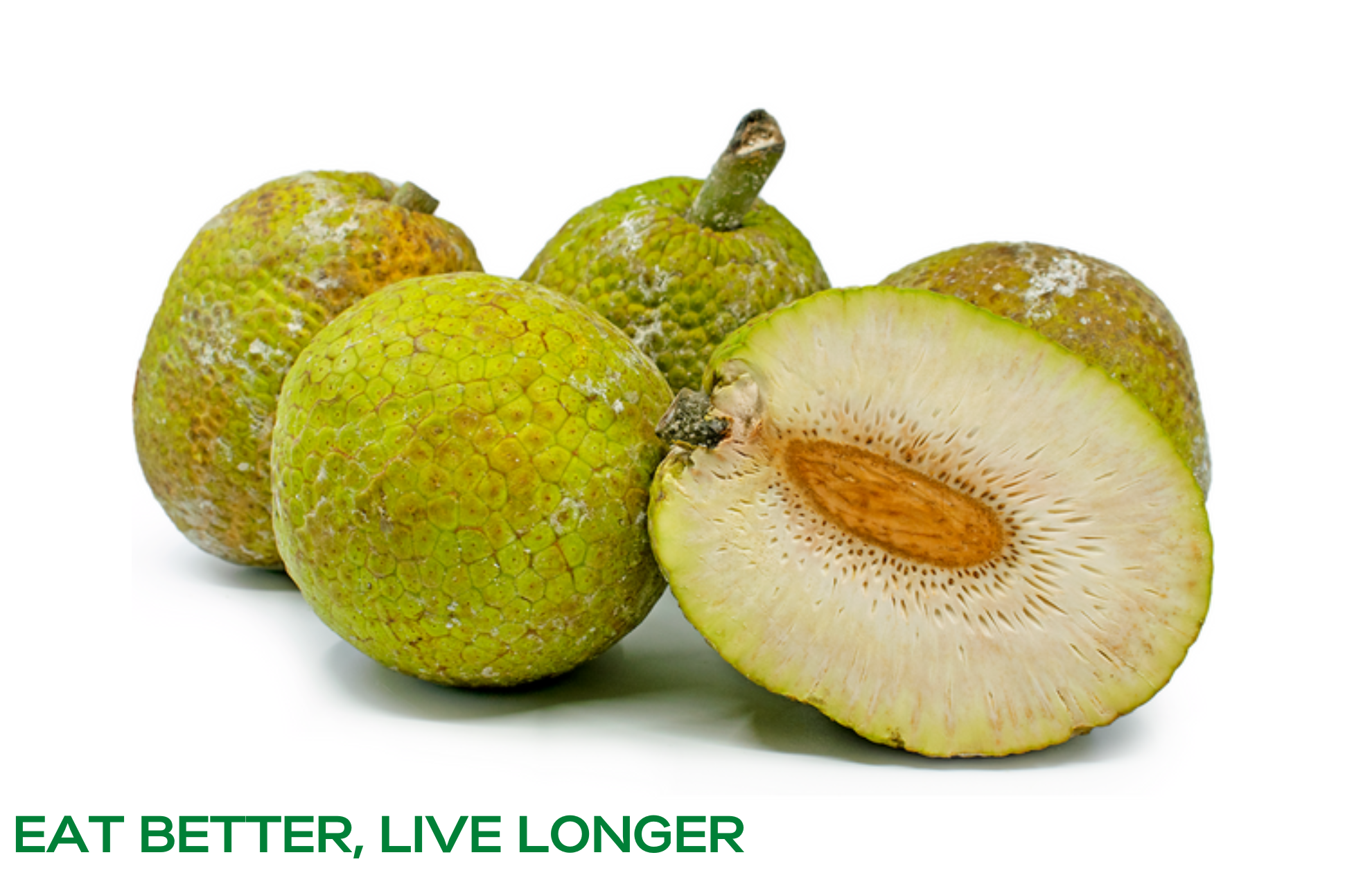Perhaps it’s the strange name, or maybe their unusual appearance. But not many people seem to be aware of the health benefits of eating breadfruit. It’s a shame, though, because as more and more research emerges on this beautiful fruit, we learn just how much health benefit they can bring to our diet. Let’s look at some of the breadfruit’s most significant vitamins and minerals and why you should get more in your diet.
Vitamin A
The health benefits of vitamin A are wide-ranging and essential for a healthy body. It supports a robust immune system, promotes eye health, and keeps skin healthy. You can enjoy a wide range of vitamin A-rich foods like breadfruit, carrots, sweet potatoes, mangoes, and more. A 1/2 cup serving of breadfruit offers up to 160% of your daily vitamin A needs.
Vitamin C
Vitamin C is perhaps the most well-known health benefit of breadfruit. It plays a crucial role in immune function and wound healing and is also known to be effective at fighting off stress and anxiety. Breadfruit has a significant amount of vitamin C per serving, with a 1/2 cup containing up to 50% of your daily vitamin C needs.
Folate
Breadfruit is also a great source of folate, essential for women of childbearing age. Having adequate amounts of this vitamin can lower your risk of having a child with neural tube defects. A 1/2 cup of breadfruit offers 100% of your daily folate needs.
Calcium
We all know that calcium is essential for strong bones and teeth. Calcium is also helpful for regulating blood pressure in people at risk for hypertension. A 1/2 cup of breadfruit offers around 8% of your daily calcium needs.
Iron
Iron is another essential mineral that most people don’t get enough of. It is crucial for producing red blood cells and maintaining overall health. A 1/2 cup of breadfruit offers around 15% of your daily iron needs.
B-6 and B-12
B vitamins are some of our diet’s most fundamental yet under-consumed vitamins. They help to convert our food into energy, keep our nervous system healthy, and promote healthy eyes, skin, and hair. B-6 and B-12 are two of the essential B vitamins to keep an eye on. A 1/2 cup of breadfruit offers around 6% of your daily B-6 needs and a whopping 14% of your B-12 needs.
Magnesium
Magnesium is an essential minerals in our body. It promotes relaxation, helps maintain a healthy immune system, and improves sleep. A 1/2 cup of breadfruit offers around 25% of your daily magnesium needs. It is important to note that the recommended daily value (RDV) for these nutrients is based on a 2,000 calorie diet. If you have a different caloric requirement, the RDV will adjust accordingly.
Dietary fiber and more!
The health benefits of breadfruit don’t end there. This delicious tropical fruit is also a great source of dietary fiber, essential for keeping your digestive system healthy and regular. Additionally, breadfruit is a good source of iron and manganese and an excellent source of vitamin K and potassium.
How to eat breadfruit for maximum nutrition
The best way to take advantage of breadfruit’s health benefits is to eat them fresh. They are not commonly found in supermarkets and are best eaten freshly picked from the tree or bought from a local market. Depends on your taste, you can eat breadfruit raw or cooked, and they work great in sweet and savory dishes. When choosing your breadfruit, it is best to choose larger, heavier fruit. They will be riper and contain more nutrients than smaller, lighter ones.
The health benefits of breadfruit are many, and they make a great addition to any diet. Therefore, next time you make it to the grocery store or farmers’ market, pick up a few of these nutritious and delicious fruits. With all the health benefits of breadfruit, there’s no reason not to include them in your diet. They are delicious, easy to cook, and available year-round. So what are you waiting for? Get yourself some breadfruit and start reaping the benefits today!
Breadfruit nutrition facts based on 100 g published on the Hawaii government website.
| Name | Unit |
|---|---|
| Protein | 4.0 g |
| Carbohydrate | 31.9 g |
| Fiber | 5.4 g |
| Phosphorus | 43.1 mg |
| Potassium | 376.7 gm |
| Calcium | 16.8 mg |
| Magnesium | 34.3 mg |
| Sodium | 19.4 mg |
| Iron | 0.5 mg |
| Zinc | 0.1 mg |
| Vitamin C | 2.4 mg |
| Thiamin | 0.1 mg |
| Niacin | 0.9 mg |
| Vitamin A | 1.4 mg |

